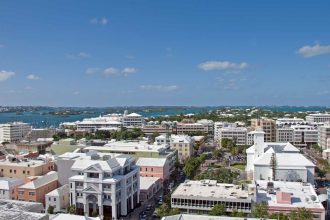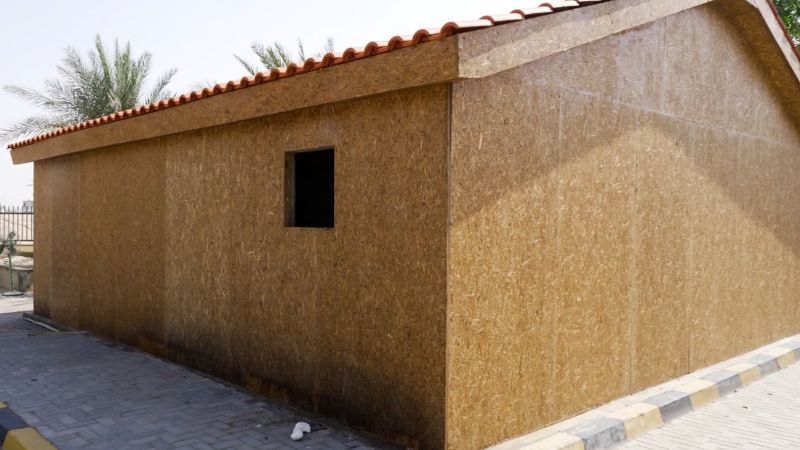The construction industry is among the biggest contributors to global heating, and one of the toughest sectors to decarbonize.
Constructing buildings and manufacturing and transporting materials accounts for about 11% of all global carbon emissions, according to the World Green Building Council. Now, Abu Dhabi-based company Desert Board says it has found a way to reduce those emissions by using waste from date palm trees.
The United Arab Emirates (UAE) has an estimated 40 million date palms, and is the world’s fifth-biggest producer of dates. But when date palm fronds are cut down they become a problem, according to Kamal Farah, director of Desert Board.
“When you discard them, they take decades to decompose, taking up huge land space and releasing methane into the atmosphere. If they’re not disposed of, they’re burned, which releases CO2 (carbon dioxide),” he told CNN.
Desert Board uses the palm tree waste left over from pruning to create a construction material named Palm Strand Board (PSB), which can replace plywood in furniture, flooring, walls, doors and shelves.
“This is taking nature-based waste and turning it into a product with value and use,” said Farah.
Farah says PSB is recyclable and just as durable as regular board, adding that it is “fire, termite and moisture resistant,” and unlike much plywood, contains no formaldehyde, which is a known carcinogen.
Desert Board manufactured its first PSB two years ago and now sells it within the UAE and to countries including Saudi Arabia, Bahrain and India. Farah says the company produces enough PSB to cover two-and-a-half football fields a day, and because it is made from palm trees, which captured carbon dioxide while they were alive, every ton of PSB used is equivalent to capturing 400 kilograms of carbon.
Farah says his company is the only one in the world using palm waste this way, and that by making Abu Dhabi less dependent on imported materials, Desert Board aligns with the emirate’s broader industrial strategy.
Abu Dhabi’s has the world’s sixth-biggest oil reserves, with around 100 billion barrels, and its economy has long depended on fossil fuels. This week’s COP 28 climate summit has put a spotlight on the sector, with the conference presided over by Sultan Al Jaber, who as well as being the UAE’s climate envoy and head of its renewables company, runs the state-owned Abu Dhabi National Oil Company (ADNOC). Earlier this week, Al Jaber had to clarify comments he made about the future of fossil fuels.
But the emirate says it is trying to diversify away from oil, and in 2022, Abu Dhabi announced an ambitious industrial strategy to boost its economy by doubling the size of its manufacturing sector by 2031, creating more than 13,000 jobs and increasing non-oil exports by almost 150%.
Omar Ahmed Al Suwaidi, undersecretary of the UAE’s Ministry of Industry and Advanced Technology, says an important part of the strategy involves developing “local supply chains and creating more value out of our industries,” as well as being sustainable.
“It’s not going to be easy. It’s going to be an opportunity … a challenge,” Suwadi told CNN. “We have a lot of experience in heavy industries like metals, chemicals, petrochemicals, and one of our key focuses is to try to [make] these industries greener.”
Paul Hampton, head of the School of Architecture and Built Environment at the University of Wolverhampton, in the UK, says the palm waste board is “a meaningful step towards the use and integration of eco-friendly principles, using reusable sustainable materials.”
But to reach a wider market it would require “additional understanding around scalability, application, and operability with existing products,” he said. Entry to the European market might need local certification around fire safety, “and how the durability of the product would react during a more interchangeable climate.”
Hampton adds that while its use in the broader housing marketplace would need reassurances of the product’s suitability, “there is meaningful scope within certain applications.”
Read the full article here





